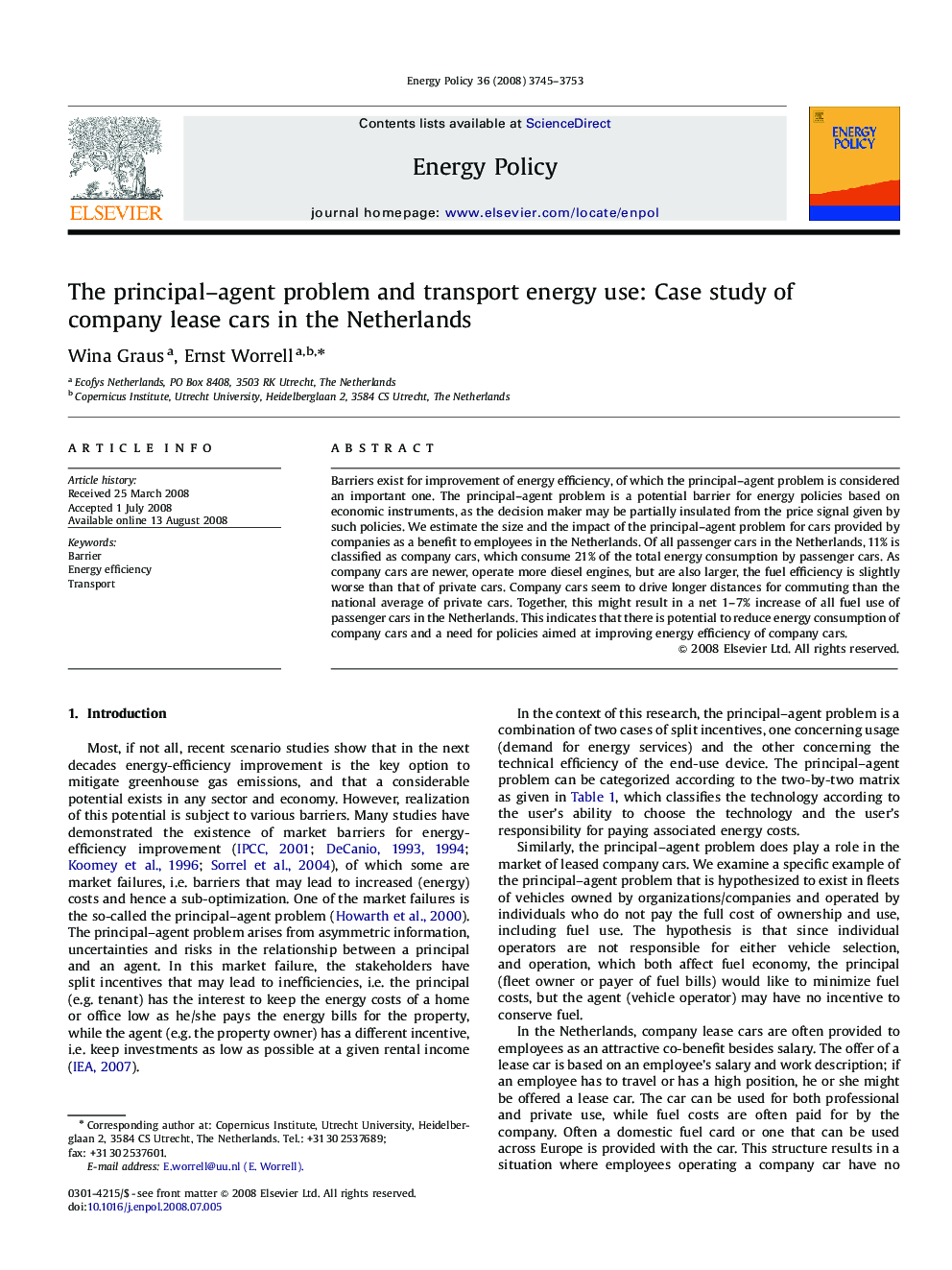| کد مقاله | کد نشریه | سال انتشار | مقاله انگلیسی | نسخه تمام متن |
|---|---|---|---|---|
| 994030 | 936063 | 2008 | 9 صفحه PDF | دانلود رایگان |

Barriers exist for improvement of energy efficiency, of which the principal–agent problem is considered an important one. The principal–agent problem is a potential barrier for energy policies based on economic instruments, as the decision maker may be partially insulated from the price signal given by such policies. We estimate the size and the impact of the principal–agent problem for cars provided by companies as a benefit to employees in the Netherlands. Of all passenger cars in the Netherlands, 11% is classified as company cars, which consume 21% of the total energy consumption by passenger cars. As company cars are newer, operate more diesel engines, but are also larger, the fuel efficiency is slightly worse than that of private cars. Company cars seem to drive longer distances for commuting than the national average of private cars. Together, this might result in a net 1–7% increase of all fuel use of passenger cars in the Netherlands. This indicates that there is potential to reduce energy consumption of company cars and a need for policies aimed at improving energy efficiency of company cars.
Journal: Energy Policy - Volume 36, Issue 10, October 2008, Pages 3745–3753